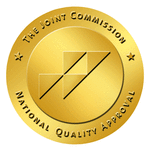
When it comes to thinking about doing anything that is earth-shattering, isn’t that the farthest thing from our thoughts? In reality, aren’t we too busy just trying to get through the day without some major hiccup or mistake that, while it doesn’t necessarily sabotage our recovery, it may give us pause to doubt our abilities or our progress?
Here’s a truth that’s little known but is very powerful. We can change the world by our actions, small as they may be. We don’t need to be the most eloquent orator or have access to a world stage in order to do so. We simply need to be ourselves, to live each day to the best of our ability, to seek to constantly improve and to make lives better for those around us.
We can speak in a gentle voice – or no voice at all – preferring to allow our actions to be the trumpeter of our words. In a way, everything that we do can help us qualify for changing the world. It happens a little bit at a time, day in and day out. We may not be able to see it or recognize it right away, yet the change, which may be subtle and nearly infinitesimal, is happening anyway.
Some of us in recovery get bogged down by making lists. There’s certainly nothing inherently wrong with list-making, but we do tend to go overboard at times, concentrating more on the task of list-making and not getting down to the actual action of the tasks. And, let’s face it. There is some comfort in the simple activity of putting things down on paper. At least that way we can see an accumulation of sorts, even if it is only the itemizing of one thing after another.
But let’s look beyond mere list making to the realization of changes that may, indeed, help to change the world. Okay, maybe it’s unrealistic to think about what we do having a major impact on the world at large. That’s fine. We can still have a profound impact on our immediate world and the people we associate with on a regular basis.
It may be that our actions result in a change of opinion of us by others whom we hold dear or to whom we owe a great deal. It could be our spouse or loved one or a close friend or our employer. While we were more or less incapacitated by our addiction, prior to going into rehab, our actions likely caused a great deal of consternation and grief. This may have contributed to a greater or lesser degree to our losing our job, suffering a financial collapse, being ostracized from certain groups, and even to severely damaging family relationships. Now that we are in recovery and are tending to what we need to do for ourselves each day in our recovery journey, the change in us may be enough that others are starting to take notice.
This is a good thing, a sign that we’re on the right path. No, we don’t have all the answers. We’re in this for the long haul. To the extent that others see our commitment, believe it, and watch us to see how well we live up to what we say we’re going to do, this can result in a substantial change of attitude that affects us greatly.
Think about how little we’ve done in the past to earn the confidence of others, to secure their trust in our words and our deeds. Now that we have embarked on a recovery journey, we are likely displaying considerably different attitudes than before. While we may stumble at times, others can clearly see that we’re trying, and that may make all the difference in the world.
It isn’t that others expect us to make miraculous discoveries or to progress faster than we’re reasonably capable of doing. But they do expect to see some indication that change is, in fact, occurring. And, by taking care of our recovery-oriented duties and responsibilities each day we are contributing to that mounting evidence of change that is going on inside of us.
Think about how much stronger we are today than we were just a few weeks ago. For even more contrast, consider how uncertain and afraid we were when we first completed rehab and entered recovery. We didn’t know which way to turn. Everything seemed so confusing. We were frightened and doubtful and maybe even a little angry. Some of us may have even looked upon our first days in sobriety as a sort of punishment, the precursor to a lifetime of deprivation, dull and boring existence devoid of happiness and pleasure.
Over time, however, that began to change. Whether that was due to the repetitive nature of some of the activities we involved ourselves in or that we began to feel more comfortable in our newfound sobriety – or some combination of the two – the truth of the matter is that we did get stronger. We did find things, while not easy, somewhat easier. Schedules became our friends. At least we knew what we needed to do when.
We also discovered that we weren’t alone, that we had allies, if not yet friends, in the rooms of recovery and in our 12-step sponsor. We listened and took in what we heard from others about how they made it through the early days of recovery. In fact, we may have begun to believe that there was something to this whole new life in sobriety that could just work for us. There could actually be happiness in our future. We weren’t going to be consigned to be miserable forever.
That likely was the beginning of the gentle change that can shake the world. It isn’t just one thing. It is an accumulation of many things. They may come fast or arrive slowly and without much notice, but changes to make a huge and lasting difference in both our lives and the lives of those around us.
After all, it isn’t the world we’re seeking to change. It’s just our world, the one we live in here and now, inhabited by our family and loved ones, our sponsor and allies in the rooms of recovery, our close friends, our co-workers and boss. And that’s enough to start with – more than enough, in fact.





 RSS Feed
RSS Feed
